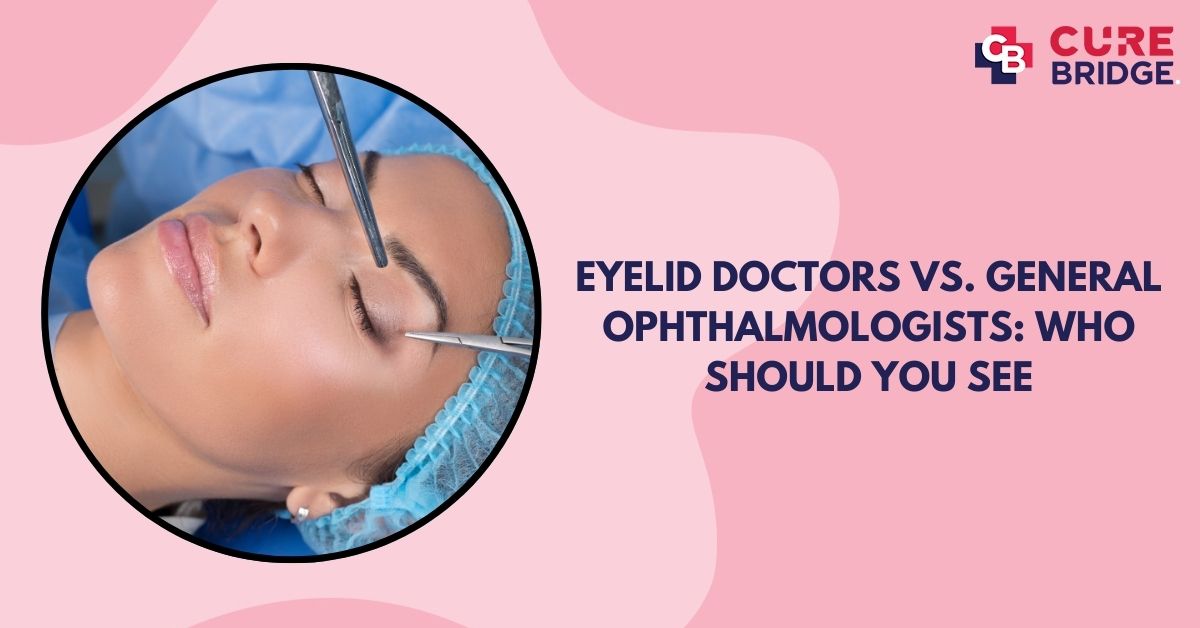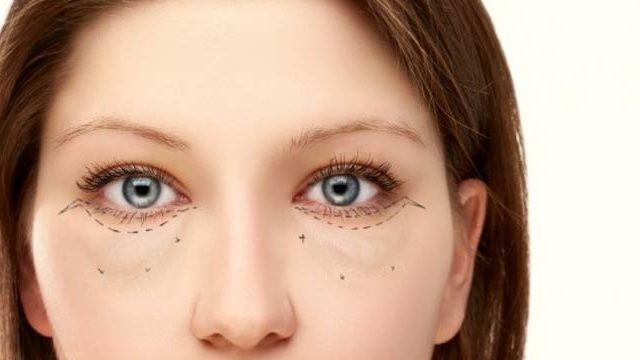
Eyelid Doctors vs. General Ophthalmologists: Who Should You See?
When it comes to eye health, knowing which specialist to consult can make a big difference. Your eyes are intricate organs, and their surrounding structures require expert care to address specific concerns effectively. Two professionals often discussed in this context are eyelid doctors (also known as oculoplastic surgeons) and general ophthalmologists. But how do you decide which one is right for your situation? Let’s dive deeper into their roles, expertise, and the scenarios where each is the better choice.

Understanding the Role of an Eyelid Doctor
Eyelid doctors specialize in the intricate structures around the eyes, including the eyelids, tear ducts, and orbital tissues. These specialists undergo advanced training beyond general ophthalmology to focus on aesthetic and functional issues involving the periocular region. Common concerns addressed by eyelid doctors include:
- Eyelid Malpositions: Issues like ptosis (droopy eyelids), entropion (inward-turning eyelids), and ectropion (outward-turning eyelids).
- Reconstructive Surgery: Procedures following trauma, skin cancer removal, or congenital deformities.
- Cosmetic Procedures: Eyelid lifts (blepharoplasty), brow lifts, and treatments to enhance the appearance of the eyes.
- Orbital Disorders: Management of conditions affecting the bony eye socket, such as thyroid eye disease or tumours.
- Tear Duct Problems: Treatment for blocked tear ducts causing chronic watering or infections.
Their expertise often combines aesthetics and functionality, which makes them ideal for cases requiring a detailed approach to both aspects.
What Does a General Ophthalmologist Do?
General ophthalmologists are the primary care providers for eye health. They diagnose and treat a wide range of eye conditions, perform vision exams, prescribe corrective lenses, and handle routine to moderate eye issues. Here’s what they typically focus on:
- Comprehensive Eye Exams: Assessing vision, detecting refractive errors, and identifying early signs of eye diseases.
- Medical Management: Treating conditions like cataracts, glaucoma, diabetic retinopathy, and macular degeneration.
- Surgical Interventions: Cataract removal, LASIK, and other eye surgeries.
- Infection and Injury Care: Addressing conjunctivitis, corneal abrasions, and other acute concerns.
While ophthalmologists primarily focus on the eye itself, they have some understanding of the surrounding structures as they relate to eye health.
Key Differences Between Eyelid Doctors and General Ophthalmologists
To make an informed decision, it’s important to understand the distinctions between these two specialists:
-
Training and Specialization
- General ophthalmologists complete medical school, residency in ophthalmology, and are trained to manage a wide spectrum of eye diseases.
- Eyelid doctors undertake additional fellowship training in oculoplastics, focusing on eyelid, orbital, and facial structures.
-
Scope of Practice
- Ophthalmologists handle vision correction, eye diseases, and general surgical needs.
- Eyelid doctors specialize in surgeries and treatments targeting the periocular area, often involving intricate reconstruction or aesthetic improvements.
-
Cosmetic Expertise
- While some general ophthalmologists may offer basic cosmetic procedures, eyelid doctors have advanced training and expertise in complex aesthetic procedures around the eyes.
When to See an Eyelid Doctor
Here are some scenarios where consulting an eyelid doctor is your best option:
- Droopy or Sagging Eyelids: If your upper eyelids obstruct your vision or your lower eyelids sag excessively, an eyelid doctor can perform corrective surgery to restore function and appearance.
- Cosmetic Concerns: Interested in procedures to rejuvenate your appearance? Eyelid doctors are experts in aesthetic surgeries that provide natural-looking results.
- Chronic Tearing or Dryness: Persistent tearing or dry eyes could be due to a tear duct issue or eyelid malposition—both of which fall under the purview of an eyelid specialist.
- Trauma or Reconstructive Needs: For injuries or surgeries that require delicate reconstruction around the eye, eyelid doctors are the go-to professionals.
- Thyroid Eye Disease: This condition can cause bulging eyes, double vision, or eyelid retraction. Eyelid doctors have the expertise to address these complex issues.

When to See a General Ophthalmologist
General ophthalmologists are your first point of contact for most eye-related concerns. Consult them if you experience:
- Blurred or Distorted Vision: Vision changes often indicate refractive errors, cataracts, or other eye diseases that a general ophthalmologist can address.
- Eye Pain or Redness: Conjunctivitis, uveitis, or corneal abrasions require immediate attention, which a general ophthalmologist can provide.
- Routine Vision Checks: Annual eye exams help detect early signs of glaucoma, diabetic retinopathy, or age-related macular degeneration.
- Surgical Needs for Vision Correction: Procedures like cataract surgery or LASIK fall within the domain of general ophthalmologists.
- Pediatric Eye Care: Children with vision problems or strabismus (crossed eyes) should initially see a general ophthalmologist, who may then refer them to a specialist.
Overlap Between Eyelid Doctors and General Ophthalmologists
There are cases where the roles of these specialists intersect. For instance:
- Blepharitis: Chronic eyelid inflammation might initially be managed by a general ophthalmologist. However, if severe complications arise, an eyelid doctor may be required.
- Tumours or Cancers Around the Eye: Both specialists can identify abnormal growths, but eyelid doctors handle surgical excision and reconstruction.
- Complex Cases: General ophthalmologists often refer patients to eyelid doctors for advanced treatments beyond their scope.
How to Choose the Right Specialist
If you’re unsure which professional to consult, start with these steps:
- Identify Your Symptoms:
- See a general ophthalmologist for vision-related issues, blurry sight, or general eye discomfort.
- For eyelid or periocular concerns, seek out an eyelid doctor.
- Seek Recommendations:
- Your primary care physician or general ophthalmologist can guide you to the appropriate specialist based on your needs.
- Research Credentials:
- Check the training and certifications of the specialist to make sure they align with your requirements. Eyelid doctors should have fellowship training in oculoplastics.
- Consider Reviews and Patient Outcomes:
- Patient testimonials can offer valuable insights into the quality of care provided by the specialist.

Final Words
The decision ultimately depends on your specific condition. If you’re dealing with general eye health or vision problems, start with a general ophthalmologist. They can diagnose your condition and refer you to an eyelid doctor if needed. Conversely, if your primary concerns revolve around the eyelids or periocular structures, an eyelid doctor is the best choice.
For those seeking expert guidance, Curebridge connects patients with top eye care doctors, so you find the right specialist for your unique needs. Visit Curebridge today to explore trusted professionals in your area and take the first step towards optimal eye health. Remember, your eyes deserve the best care possible, so don’t hesitate to seek expert advice tailored to your needs.
